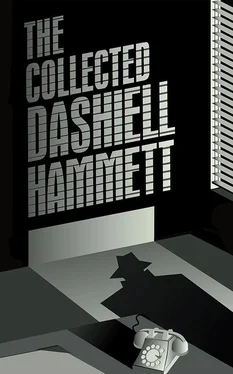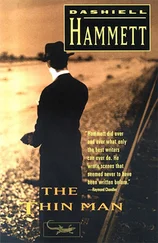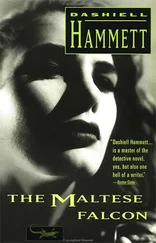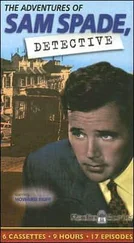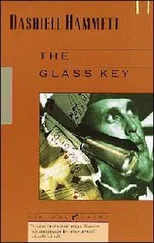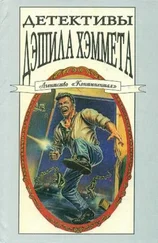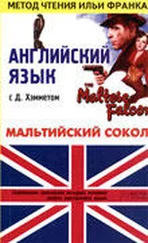Guy’s foot nudged the dead man slowly, reflectively. Guy’s eyes were dull with distant things, things that might have happened five years ago in a place that to her was only a name on a map, vaguely associated with Crusades and kittens. Blood trickled down his cheek, hung momentarily in fattening drops, dripped down on the dead man’s coat.
The poking foot stopped its ghoulish play. Guy’s eyes grew wide and bright, his face lean with eagerness. He snapped fist into palm and jerked around to Margaret.
“By God! This fellow has got a pearl concession down in La Paz! If I can get down there ahead of the news of the killing, I can — Why, what’s the matter?”
He stared at her, puzzlement wiping animation from his face.
Margaret’s gaze faltered away from him. She looked at the overturned table, across the room, at the floor. She could not hold up her eyes for him to see what was in them. If understanding had come to him at once — but she could not stand there and look at him and wait for the thing in her eyes to burn into his consciousness.
She tried to keep that thing out of her voice.
“I’ll bandage your cheek before we phone the police,” she said.
The Nails in Mr. Cayterer
Black Mask, January 1926
I was experiencing, as one will, difficulty with the eighth line of a rondeau when Papa’s firm and not to be mistaken tread sounded outside my door. Now I did not like deception, no matter how mild, but neither did I like having Papa quarrel with me, and more forcible, if not actually greater, than my abhorrence of duplicity was Papa’s antipathy to my poetry, a prejudice which, I may be excused for believing, owed much of its vigor to the fact that he had never read, so far as I knew, a single line of my work.
In these circumstances I could not feel that it was altogether reprehensible of me to slip the unfinished poem under a pile of reward circulars on my desk while, with my other hand, I picked up the top circular, so that when Papa entered my office I was, at least so far as appearance went, studying the description of one Johnson Tobin, alias The Dis-and-Dat Kid, who had recently escaped from the lawn of the federal prison at Leavenworth.
“Up and at ’em, Robin! Got a job.”
Picking up my hat, I followed Papa out into the corridor, where he explained somewhat fancifully, as we stood waiting for an elevator, “Hop Cayterer’s been squirting tears in my ear over the phone. By the sound of his whining, somebody’s done him wrong for one of his millions.”
One who had not known Papa might have thought, witnessing his joviality of voice and demeanor, that he derived considerable satisfaction from Mr. Cayterer’s plight, but that notion, I need hardly say, would have been quite unjust. The truth was simply that Papa liked his work in its every aspect, and thus greeted each new task with a wealth of pleasurable anticipation which, it must be confessed, sometimes rendered him just a little callous to the anguish of those who brought their difficulties to him.
Our client’s offices were only a few blocks from ours in distance, but far from ours in appearance; ours were small and almost severely plain; Mr. Cayterer’s were large and elaborately furnished, and the largest and most luxurious was his private office, into which a neat, bright-eyed boy of perhaps fifteen ushered us.
Although this was not my first visit to the office (we had, the year before, performed some work for Mr. Cayterer in connection with a dubious cement contract), I was struck afresh by the room’s charming arrangement. It was a room whose length was perhaps twice its width, and in it there was nothing — from the stained glass of the wide windows to the old charts that covered the walls above time-darkened paneling — at which one could point a finger and say, “That does not become a place of business,” and neither was there — from the dull black of the richly carved desk at which Mr. Cayterer and his secretary sat to the wrought iron knob on the door behind us — a trace of the rigid angularity and hard shininess that make modern commercial furnishings so hideous.
Mr. Cayterer stood up to shake Papa’s hand and mine. He was a large man, nearly as large as Papa, and of about the same age, which was sixty-three, but smooth-shaven — Papa wore an irregular grey mustache — and without Papa’s ruddiness. One is inclined to expect an outdoor complexion of a mining engineer, but doubtless Mr, Cayterer’s sallowness could be defended on the grounds that he was more promoter than engineer.
“Sit down, Mr. Thin,” he said to Papa, and to me; and to his secretary: “That will be all now, Miss Brenham.”
“Yes, Mr. Cayterer.”
She had not looked at Papa and me when we came into the office, and. she did not look at us now as she gathered up letters, pencil and notebook and withdrew. She was a distinctly attractive young woman of not more than twenty years, with soft lemon-colored hair and singularly mild blue eyes.
Mr. Cayterer slid an open teak box that was really a trunk full of cigars across the desk toward us. Papa took a cigar while I smiled my thanks and my refusal.
“Thin,” the promoter said slowly to Papa when their cigars were burning, “some — is crucifying me.”
Papa moved his cigar from the right corner of his mouth to the left without the assistance of his fingers.
“Is, has or is trying to?”
Mr. Cayterer took his cigar from his mouth, and, turning it in his hand, studied it without visible satisfaction. The cigar was, I perceived, burning quite crookedly, a detail not without its significance.
“Well, he’s got two nails in me and his hammer’s up over the third.”
“So. Suppose we take a look at the couple you’ve got.”
“We’ll get around to that, Thin, Do you know anything about China? About Chinese affairs today?”
“Only that all those dinguses they sell in Chinatown don’t come from there.”
“That’s something to know,” the promoter replied gravely, and frowned again at his unevenly lighted cigar.
Clasping my hands in my lap, I repressed my impatience, my impulse to fidget. No one who had read, in The Jongleur, my appreciation of Danko’s poems could have accused me of being without sympathy for the primitive; hut I felt, none the less, listening to the casual metaphors, the jocular irrelevancies, with which Papa and Mr. Cayterer skirted around whatever business had brought us here, that these circumlocutions, these survivals of Indian council fire and bushman community hut, might well have been dispensed with in favor of modem conciseness and clarity.
“China’s got a central government,” the promoter approached the point of our conference at last, “but it doesn’t mean anything. Maybe tomorrow there’ll be a new president, dictator, emperor. It doesn’t make much difference if there is, or which. What power there is is in the hands of the tuchuns — the governors of the provinces. A real central government will come when one of the tuchuns is big enough to buy in or beat out the other tuchuns. I think I know who’ll be that one — and that’s what got me into this.
“Never mind his name, but he — this special tuchun — and I are old friends. We’ve done business together in the past and, what’s more, made a profit at it. Now look! The U.S. is the U.S., and China is China, but politics is politics and people are people. The leading candidates for the job of running China just now are Chang Tso-lin and Feng Yu-hsian, with a few weaker ones trailing them. They’ve been making their plays for some time, and they’ve got themselves nicely balanced. One wins here, the other wins there. Neither is strong enough to push the other out of the way — a stand-off.
Читать дальше
